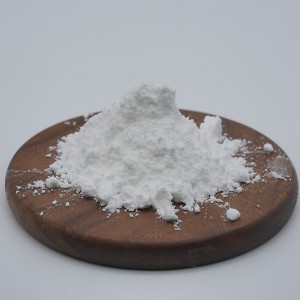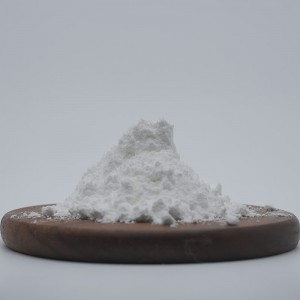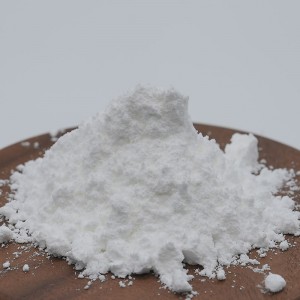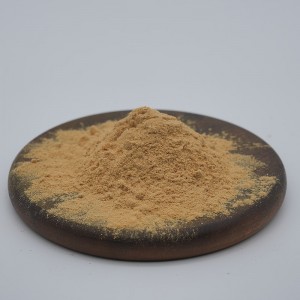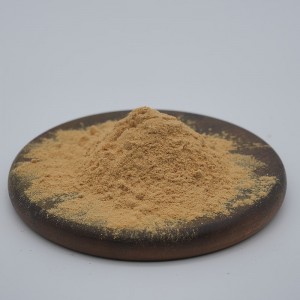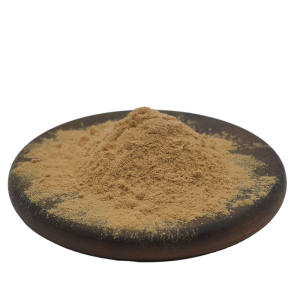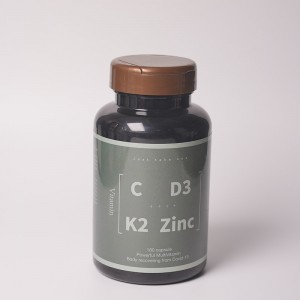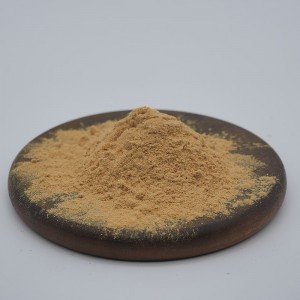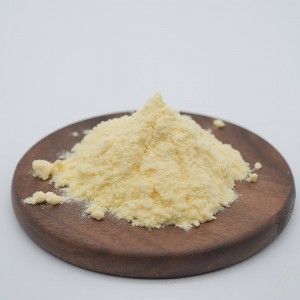
Products
Niacinamide ribose chloride salt 99%
Product Description
Niacinamide ribose chloride salt 99% is a highly pure form of niacinamide ribose, a compound derived from niacin (vitamin B3) and ribose sugar. It is a versatile and valuable ingredient used in various industries, including cosmetics, personal care, and food supplements. This introduction will explore the characteristics, applications, and benefits of niacinamide ribose chloride salt without focusing on its therapeutic effects.
Niacinamide ribose chloride salt 99% is known for its excellent stability and solubility properties. These characteristics make it highly desirable for formulation in different products. The compound is typically manufactured using a purification process that results in a purity level of 99%. This high purity ensures the effectiveness and reliability of niacinamide ribose chloride salt as an ingredient.
In the cosmetics industry, niacinamide ribose chloride salt 99% is often included in skincare formulations due to its potential benefits for the skin. Its water-soluble nature allows for easy incorporation into creams, lotions, serums, and other cosmetic products. Niacinamide, a component of niacinamide ribose, is known for its ability to improve the appearance of the skin by reducing the signs of aging, enhancing skin tone, and supporting skin barrier function. Ribose sugar, on the other hand, is valued for its potential energy-boosting properties. When combined, these two components offer a unique compound that may contribute to the overall efficacy of skincare formulations.
Personal care products such as shampoos, conditioners, and body washes can also benefit from the addition of niacinamide ribose chloride salt 99%. The compound's solubility allows it to be easily incorporated into various formulations, providing potential benefits for hair and scalp health. Niacinamide is believed to support hair growth and promote a healthy scalp environment, while ribose sugar may help nourish and strengthen hair strands. This combination makes niacinamide ribose chloride salt a desirable ingredient for personal care products aiming to enhance hair health and appearance.
The food supplement industry also recognizes the potential of niacinamide ribose chloride salt 99%. When used as an ingredient in dietary supplements, it may offer various benefits. Niacinamide, as a form of vitamin B3, is involved in energy metabolism and can support overall vitality and well-being. Ribose sugar, which is an essential component of ATP (adenosine triphosphate), plays a critical role in energy production within the body. By combining these two compounds, niacinamide ribose chloride salt may potentially provide a comprehensive approach to supporting energy levels and overall health when included in food supplements.
One of the advantages of niacinamide ribose chloride salt 99% is its versatility in formulation. It easily integrates into different products without compromising their stability or texture. Its water-soluble nature allows it to be conveniently mixed with other ingredients, making it suitable for a wide range of formulations. This flexibility enables manufacturers to incorporate niacinamide ribose chloride salt into various products that aim to improve skin health, hair care, and overall well-being.
Additionally, niacinamide ribose chloride salt 99% is generally considered safe for use in cosmetic, personal care, and food supplement applications when used as directed. However, it is crucial to follow recommended guidelines and consult with regulatory authorities to ensure compliance with specific regulations in different regions.
In conclusion, niacinamide ribose chloride salt 99% is a highly pure compound derived from niacinamide and ribose sugar. Its stability, solubility, and versatility make it an attractive ingredient for use in cosmetics, personal care products, and food supplements. With potential benefits for skin health, hair care, and overall well-being, niacinamide ribose chloride salt serves as a valuable addition to various formulations. Manufacturers can leverage its properties to develop effective and high-quality products that meet consumer demands in the industries of cosmetics, personal care, and food supplements.
Certificate of Analysis





